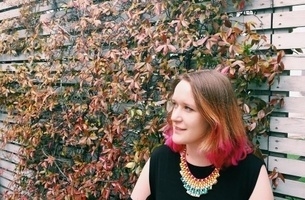
How the Dark Side of Online Engagement Hampers Creativity

Shrinking budgets, the scourge of cost consultants, the spread
of client cowardice, the blind data-worship – ask a top creative director about
their biggest concerns with the industry and you can usually predict what their
answer will be. I’m sure there’s a drinking game in there somewhere. But
there’s one topic in Ad Frustration Bingo that’s been really preying on my mind
this week and that’s the online ad troll.
Chatting to Marcel Sydney’s David Nobay this week, we ended
up on the topic of anonymous comments and the way they hamper risk-taking
bravery among younger creatives. The fear that peers hiding behind a keyboard
will rip your new baby to shreds is a relatively new – ish – phenomenon in the
history of advertising. He’s far from the only senior creative to share their
worries about the impact it’s having on the constantly plugged-in young
generation.
It’s one more psychological stressor, in an age of job
instability, spiralling rents in capital cities, and dwindling budgets that
make adland an increasingly stressful place to forge a career. For a digital native
junior looking to build a profile, the thought that a wrong step could throw up
pages of online evisceration for a potential employer doing a Google search is
a scary prospect.
For creative agencies battling to prove their value to
clients entranced by data and notions of scientific certainty, it’s pretty
frustrating. We’ve spoken to creative directors whose client relationships have
been rocked not by the wider public or a negative comment in consumer press, but
by toxic comments from nameless industry insiders.
But the Advertising Keyboard Warrior is a unique subspecies
among the trolls. By and large, they work in the industry, commenting on
company time under the guise of research, hiding behind anonymity to protect
their own careers. They’re also – I know it’s hard to believe – not the worst.
I’ve got friends who are games journalists and the personal abuse they’ve
suffered (not to mention threats) are nothing short of disturbing. In 2014, the
Gamer Gate phenomenon saw online hordes target writers and editors for what
they saw as a lack of journalistic ethics – in a pretty unethical fashion.
Transgressions such as shagging games developers (from an ad industry
perspective – how quaint!) resulted in doxxing attacks and personal details
such as home addresses revealed for those who wanted to take their grievances
into meatspace.
Luckily, in advertising the trolls are either too lazy or
overworked or achingly nonchalant to do anything much beyond bitching. There
should also be space for critical evaluation of work, forums to debate the
issues facing the industry and I can also see the value in anonymity if it
allows whistleblowers to reveal malpractice. But, in the main, if you really
need to say something, why not have the balls to put your name to it?
Recently the Guardian revealed that they were re-evaluating
their approach to online comments. They’ve noticeably reduced the number of
articles that are open to comment and this week published a series of articles
about the impact of online abuse. Some of their most high profile writers have
spoken out about the messages they’ve received (quelle surprise, of the ten most victimised journalists, eight are women and the two men are black).
Leftwing columnist Owen Jones also wrote about the polarising and toxifying
effect of the most abusive trolls on political debate, as they cause
journalists to self-censor and other potential commenters to withdraw
themselves from the discourse.
I can’t help but see the analogy with the advertising industry.
I spent a week of work experience at the Guardian moderating
comments on their opinion platform, back then known as Comment is Free, so I
have some skin in the game. Well, the tip of a pinky. I know from experience
that the line between abuse and justified criticism or the rough-and-tumble of
debate can be a subjective one. Where something is clearly libellous, an
obvious threat or a nothing but a string of expletives, it’s an easy call to
make. On the other hand that murky middle ground is much harder – if it looks
like you’re removing comments that simply disagree or offer a critical
perspective, you leave yourself open to accusations of bias.
I’m a great believer in freedom of speech and freedom of the
Internet – it’s as crucial to democracy as freedom of association. But on the
other hand, vindictive bullies spreading poison unchecked are also creating
their own form of censorship (creative, political) and in the most extreme
cases are endangering lives.
What is
interesting is that while agencies pursue clicks, views, likes and comments for
their clients, the creative departments are also battling to fend off the
darker side of ‘engagement’. Will the embittered ever be able to see the
difference between personal vendettas and constructive criticism? Will the
industry ever be able to stop what is essentially a collective act of self-harm?
I don’t know. No one does. Maybe those young creatives and
suits who make it through the online onslaught emerge unbroken, with thicker
skins and stronger spines. Forged by fire and all that. It’s not a great
scenario but it’s the creative industry’s only hope.













